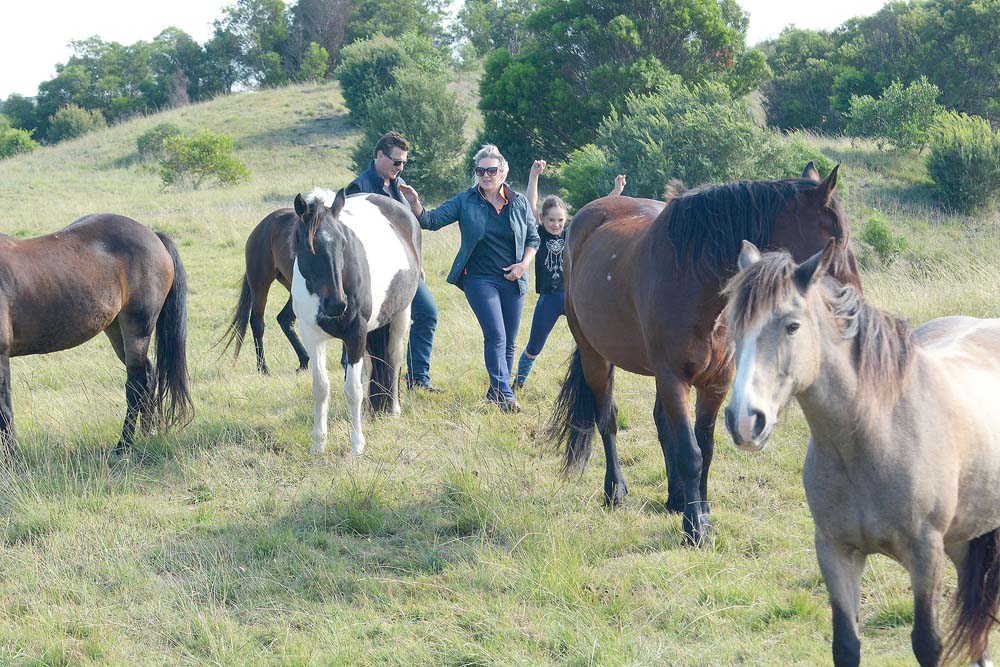
KAREN Alija says horses can help people learn about themselves in much the same way that they have helped shape her new outlook on business during the coronavirus pandemic.
Ms Alija, director of Gunnamatta Trail Rides, said lessons learned from horses’ survival instincts enabled her to accept the changes caused by COVID-19 and bring the family business back on track.
The business virtually shut down in March but has since developed a new outlook on the way things are done.
Ms Alija said businesses needed to become more resilient and flexible.
“This is not an easy task, and pivot strategies need to be implemented to ensure that the business can accept and adapt to change … as individuals and teams,” she said.
“With our extensive knowledge and experience with horses, we have been able to draw from their survival instincts and bridge a connection to their resilience and their ability to adapt to what they are facing.”
After 50 million years of experience in adaptation and survival, she said horses had an ability to teach people some of their emotional intelligence skills in communication, connection and resilience.
Gunnamatta Trail Rides has launched its Mane Insights program to teach people about themselves.
“It’s not about equine therapy or horses as such, it is more about the individual,” Ms Alija said.
“With the immediate and unbiased feedback that horses give us, we learn more about ourselves and what image we are projecting on others, which most often is unintentional.”
Ms Alija said communication and connection were “extremely important at the best of times, but especially now it is critical to our overall mental health and wellbeing”.
She said Mane Insights would work with teams from businesses and organisations, schools and groups to uncover learning outcomes, such as direction, ability to accept and adapt to change, connection, resilience, confidence, leadership, communication, how to control and regulate emotions and energy, and sensory and emotional experiences.
“The experts in this program are our horses,” Ms Alija said.
First published in the Southern Peninsula News – 27 October 2020



